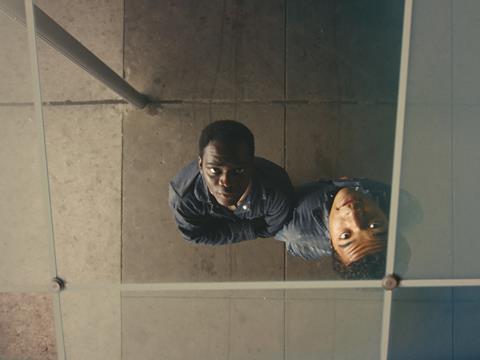
Any awards campaign demands a degree of stamina, not least the one Amazon MGM Studios’ Orion Pictures has mounted for reform school drama Nickel Boys. That should not be an issue for RaMell Ross, who once spent 59 hours inside a wooden crate he had consigned to have shipped from Rhode Island to Alabama.
“The idea was to put my body and myself on the line,” says the 42-year-old artist-turned-director of his 2021 Return To Origin installation, a recreation in reverse of a real-life journey taken in 1849 by an enslaved man called Henry Box Brown. “Putting oneself in danger for something you care about is the ultimate possible sacrifice,” adds Ross. “What was it like for him to be in this complete darkness of transit, putting his life into the universe’s hands for freedom? To just get a glimpse of that seemed to be worth it, even if it’s ineffable.”
An alternative form of prolonged incarceration features in Nickel Boys, an adaptation of Colson Whitehead’s 2019 Pulitzer Prize winner that marks Ross’s debut narrative feature. Produced by Plan B, Anonymous Content and Louverture Films, it tells of academically minded African American youth Elwood Curtis (played by Ethan Herisse), whose promising future in 1960s Florida is derailed by a brush with the authorities.
Sent to a reform school for an indeterminate period, Curtis discovers the ‘Nickel Academy’ to be a brutal institution built on intimidation and violence, more interested in exploiting its charges than rehabilitation — and efforts by his grandmother (Aunjanue Ellis-Taylor) to reverse the miscarriage of justice go nowhere. Yet Elwood also finds a friend in wily Jack Turner (Brandon Wilson), a fellow student and kindred spirit who gives him the strength to persevere and the courage to plan an escape.
Premiering at Telluride, Nickel Boys went on to play New York and London film festivals ahead of a US release on December 13 through Amazon MGM Studios. A UK release on January 3 through Curzon means the film will be eligible for the Bafta Film Awards, and it has already secured three Gotham nominations for best feature, director and breakthrough performer for Wilson.
Ross was preparing to execute his Return To Origin project when Plan B’s Jeremy Kleiner and Dede Gardner sent him an advance copy of Whitehead’s novel via Louverture’s Joslyn Barnes, a producer on his 2018 documentary Hale County This Morning, This Evening. The artist and filmmaker immediately identified parallels between its fact-based story and his directing debut, an intimate portrait of a close-knit Alabamian community that secured him an Oscar nomination for best documentary feature.
“I started chatting with Jos about some ideas I had for it, and our initial conversation was so productive that I asked if she would co-write with me,” recalls Ross. “Joslyn is very specifically brilliant and very generous with her brain, so for me it made sense.”
Identity and reality
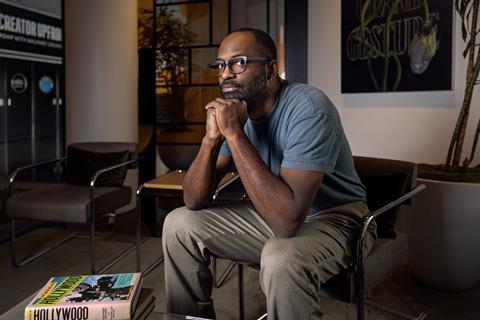
The Black experience in the American South has been central to Ross’s work ever since he gave up his ambitions of a career in basketball for one dedicated to photography and academia. Yet it was moving to the city of Greensboro, Alabama for a teaching job in 2009 that crystallised his thinking, his casual documentations of the lives of two of his students eventually providing the material for Hale County.
“I started to think about its relationship to my identity and to reality in general,” he says. “I realised how central the American South is to the visualisation of America and the production of Blackness. The idea of Hale County was to make a film that was a sculpture, or an ode, about a person participating in its community from the inside. If you can give someone the experience of that, they can engage with it the same way they engage with the experience of being a human.”
A key element of Ross’s already-established aesthetic is the use of the first-person perspective, in which the camera represents his protagonists’ singular point of view. In Nickel Boys, we only see Elwood when he catches a glimpse of himself in a mirror or another reflective surface — until the character of Turner is introduced, at which point we see the world, and Elwood, as he perceives them. One of the rare times we see them together occurs in a scene where the pair look up at a mirrored ceiling. A series of parallel scenes, set in a more contemporary period, show an older version of Elwood, played by Daveed Diggs, from a vantage point behind his head that leaves his face and features obscured.
“I would hope the experiment of synchronising a character’s relationship to the world with the audience’s encounters with that world would produce in the audience an inability to judge,” says Ross. “How is your relationship to the ‘other’ when you are them and they are you? The hardest part was knowing what things to use and what to shed. What are the core elements that give us the memory of a moment?”
The technique required Ross’s lead actors to enact some scenes with elaborate camera mounts strapped onto their bodies — a challenge he says was accepted at once by his two young stars. “It was a space for them to play with new friends in a way they hadn’t before,” he says. “I think it forces or encourages access to a different mode of acting that may be attractive to that type of risk-taker.”
In one pivotal scene, taken directly from Whitehead’s original novel, Elwood is subjected to a savage beating after being caught brawling with a bullying classmate. In Ross’s film we only hear the blows as they are inflicted on his body, as all Elwood can see at this moment is the mattress he has been shackled to.
“I think we’ve seen enough images of Black people suffering in the ways in which it’s been shown,” says the director. “Rather than add to that tsunami of images, how do you get closer to reality? People don’t watch themselves get beat, and they very rarely watch other folks get beat; it’s not a thing that happens often. By choosing not to show it, and instead exploring it through sound, it actually becomes more authentic.”
Ross admits it was “horrible” for him and sound editors Dan Timmons and Tony Volante to “manufacture audio terror”.
“There’s definitely no pleasure in it, but there is pleasure in honouring trauma in ways it hasn’t been in the past,” he continues. “In that sense, the ends justify the means.”
Ross’s time as a basketball player saw him play in the first division of the National Collegiate Athletics Association and play professionally in Northern Ireland with its Belfast Star team. A future in sports may have eluded Ross, yet it still has a role in his filmmaking process.
“Being a point guard in basketball gives you a certain type of relationship to the visual field, which I think is easily applied to the camera,” he says. “Sports also gave me a sense of discipline and practice and thinking ahead. It’s quite hard to play basketball now because my body just aches. But I still dream about it, and I still wear the scars.”
At this point, Ross reveals two scars that sit beneath his shoulder blades and indicates a foot he says has been broken twice. “There’s definitely some unresolved trauma there, so maybe I can figure out a way to express it,” he says with a wry smile. “But if you know someone who can give me some stem-cell root rejuvenation so that I can still play…”





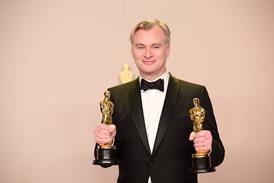









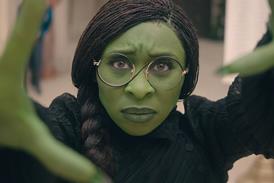

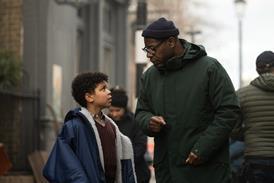






![[Clockwise]: 'Anora', 'The Substance', 'Kneecap', 'All We Imagine As Light'](https://d1nslcd7m2225b.cloudfront.net/Pictures/100x67/6/4/0/1439640_screenteamfilms_937759.jpg)
No comments yet